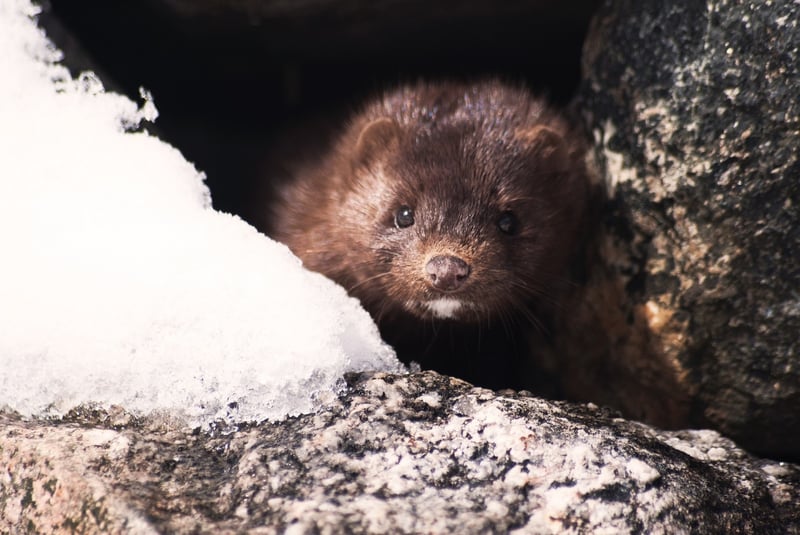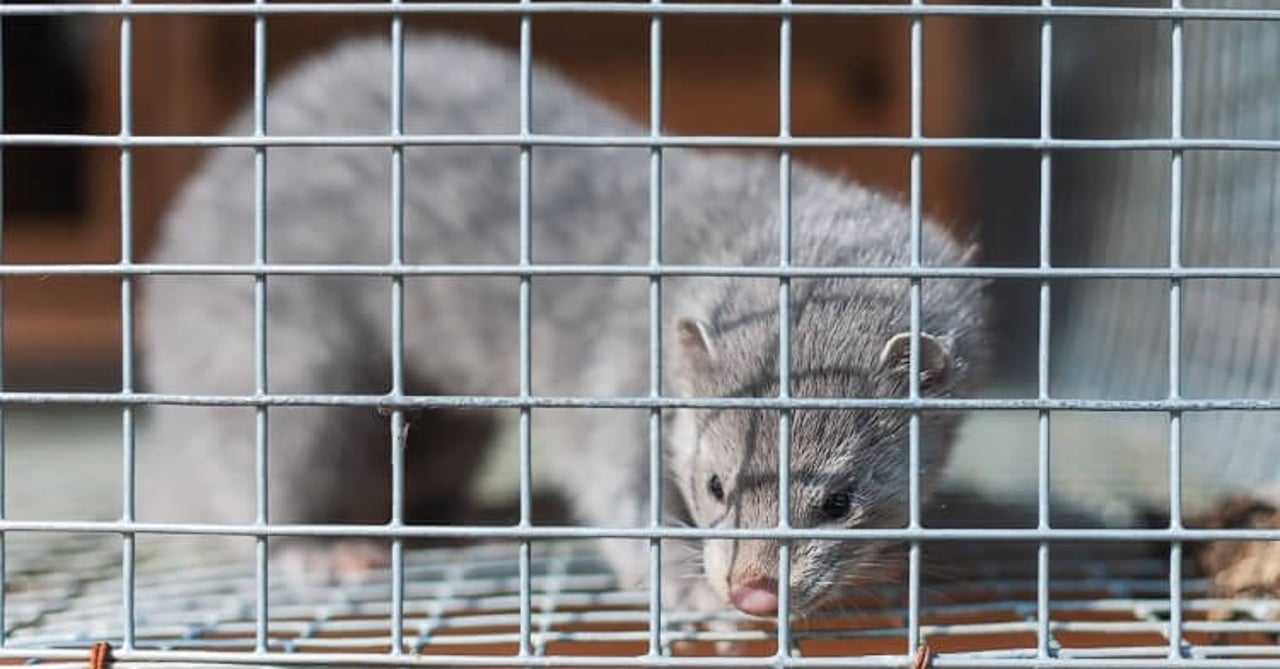
COVID-19 outbreak at Canadian mink farm is the latest wake-up call
News
A COVID-19 outbreak was declared at a mink farm in Fraser Valley, British Columbia and testing has now confirmed COVID-19 in mink on this farm, making this the latest case of the virus completing a full circle transmission. It’s just the latest wake-up call for Canada to end the farming and trade of wild animals for luxury products like fur.
Coronaviruses are zoonotic diseases, which can be transmitted between animals and humans. In April 2020, in the Netherlands, it was the first time that the virus completed a full circle transmission, from human to animal, and back to human.
COVID-19 has spread like wildfire on mink farms in Europe and several states in the US. So far infections have happened on mink farms in the Netherlands, Denmark, France, Spain, Sweden, Italy, Greece, Poland, Lithuania several states in the US (Michigan, Utah, Wisconsin and Oregon), with the latest being here in Canada.
Mink farming and COVID-19
It has become apparent that mink are highly susceptible to COVID-19 and new Danish research showed that the SARS-CoV-2 virus is capable of mutating in mink. A new mink-related strain has infected people in Denmark and triggered a lockdown for more than one-quarter million Danes. While virus mutations are common, mutations can cause concern because it could threaten the success of future vaccines.
Another risk that should not be overlooked is the possibility for farmed mink to come in contact with and infect wild mink populations, as has happened with other diseases.
The reactions from governments have varied so far. The Netherlands has decided to accelerate the closure of all mink farms from 2024 to March 2021. Large scale culling has happened or is planned to take place in France, Poland and Spain. Other countries, like the US and in Canada, have increased biosecurity, quarantined farms, and are monitoring the situation.
Why World Animal Protection is calling for the end of mink farming
75% of new and emerging infectious diseases impacting human health come from animals, mainly from wildlife. Mink farming is an area of the global wildlife trade. These wild animals are auctioned and subsequently shipped around the world to live their lives in tiny cages. Canada has imported mink on an annual basis, usually from the U.S. The farming of mink only exists for the production of luxury products that contain fur.
The fur industry is in decline. In Europe there are numerous countries (e.g., UK, Austria, Slovenia, and Croatia) where mink farming is banned, and other countries, including France, Slovakia and Norway, are committed to phasing out this farming practice.
World Animal Protection is strongly encouraging all mink farming countries to follow the trend in Europe and phase out fur farming as soon as possible. We must take a One Health, One Welfare approach to prevent the next pandemic and end this cruel industry that poses a significant public health risk. It’s time to change our relationship with animals. Delaying measures increases the chances of mink farm outbreaks of our own, further complicating our ability to reduce the spread of COVID-19.
Ending the wildlife trade is one of the most effective strategies for preventing the next pandemic.
According to the latest data from Statistics Canada, there are approximately 98 active mink farms in Canada right now.
